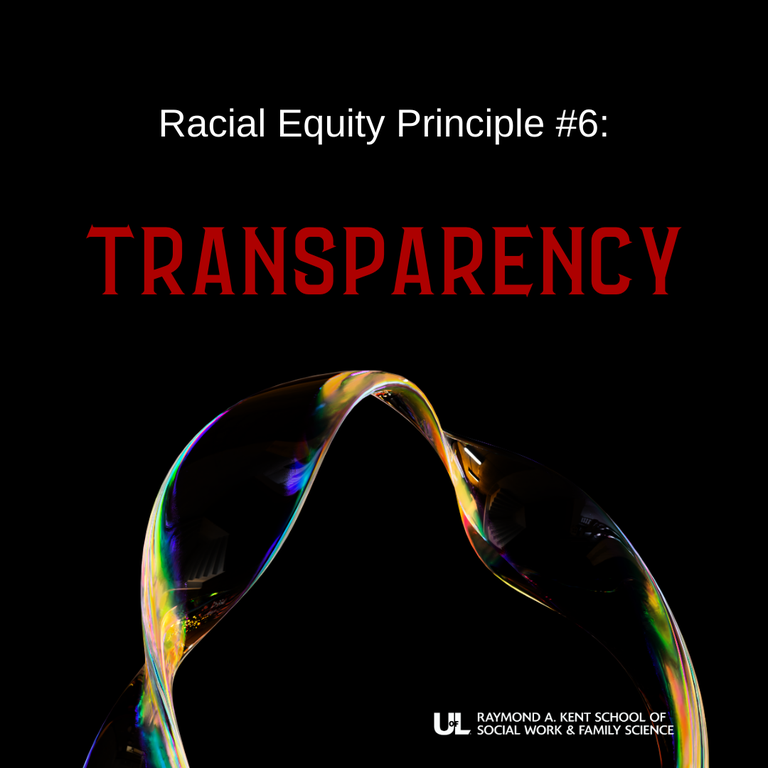DEI Racial Equity Principle of the Week: Principle #6

For the next several weeks we will be sharing 1 of 10 Racial Equity Principles created through the work of several grassroots organizations, most notably the Dismantling Racism Works collaborative, and curated by Tema Okun. Each Racial Equity Principle includes a definition and description of how applying that principle may look in our daily lives. We encourage you to reflect on the description of each principle, how much you can relate to or see value in it, and to what extent you may want to apply any of the approaches suggested in your daily lives, inside and outside of the Kent School.
Racial Equity Principle #6: Transparency
"Transparency means that we avoid pretending to know what we don’t know. It also means being clear about what we do know and how we know what we know. We use transparency to help us hold complexity and nuance. For example, when a school requires that we give a standardized test, rather than invest in the test as a meaningful measure of learning and intelligence, we can use transparency to talk to our students about testing, the history of testing, the purpose of testing, the role of testing as a profit center. We can help students understand how any test fits into the institution of education, and the consequences attached to passing or failing the test. We can help students see how little tests actually measure and how they certainly fail to measure the deep genius within each of us. We can then invite students to name all the options available to them given the realities of testing and help them think about how and why they want to approach the test. For another example, if we are trying to land on a strategy for taking action, rather than pretend or posture that one strategy is the “best” or “right” one when there is disagreement, we can be transparent about the tensions involved in making any of the choices. When we need to have a difficult conversation, we can be transparent about our anxiety or nervousness, telling the other person "I need to talk to you about something and I'm not exactly sure how."
Transparency is really useful when we find we are caught between what seem to be conflicting values or options; rather than force ourselves to take a position that we may or may not believe in, we can make the tension transparent and work collectively to make choices about how to face the tension and learn from the choices.
And also, like all these principles, our ability to use them depends in part on who we are, how much power we have, how much risk we can afford to take. My ability to be transparent or offer vulnerability as a cisgender white woman with a college education is very different than the ability of someone with less formal or informal power, someone or even a community of people whose decision to speak truth or show up authentically can be life-threatening.
This principle is most helpful as a strategy to consider when faced with constraints or challenges that are difficult to navigate, particularly alone. What possibilities emerge as we are honest with ourselves and others about the challenge(s) we are facing rather than pretending or performing that we have it figured out?"
Retrieved from: whitesupremacyculture.info/racial-equity-principles.html
